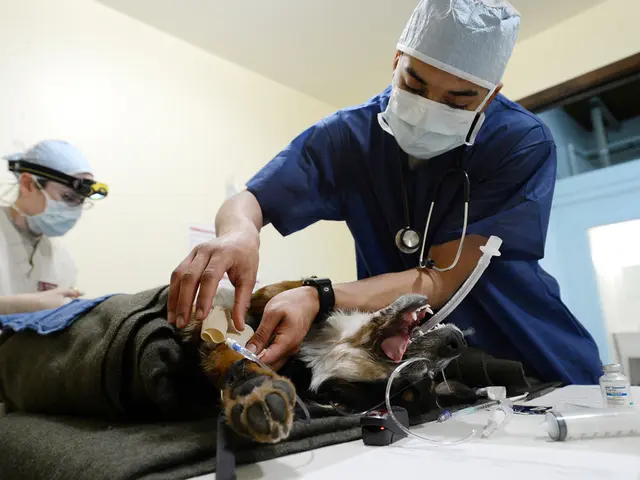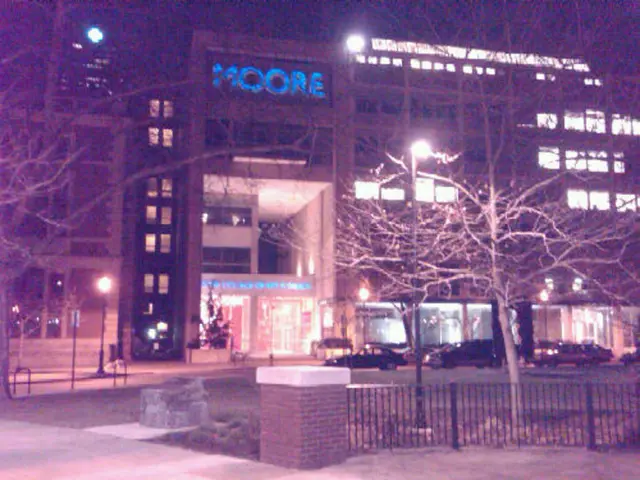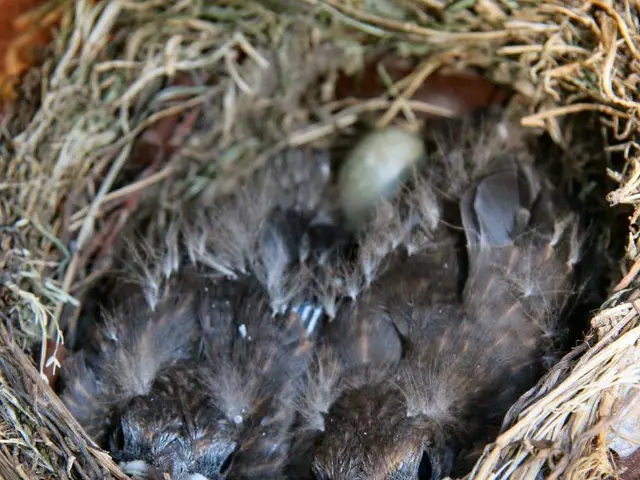Investigating coffee consumption: Could it potentially decrease chances of colon cancer?
Kick back and relax, folks! Here's the scoop on coffee and colorectal cancer we've got brewing.
The World Cancer Research Fund has dropped some fascinating tidbits about a connection between coffee and a decreased risk of colorectal cancer, specifically. In a study over at the International Journal of Cancer, it looked like knocking back 4 cups a day could potentially lessen the risk of colorectal cancer recurrence by a whopping 32% among participants with stages 1 to 3 of the disease.
But, here's a curveball for ya! The scientists found a difference in the risks between caffeinated and decaffeinated. The high-energy version with caffeine seemed to be associated with a higher risk of rectal Cancer, while decaf didn't show any such links for colon cancer. That might imply our bodies metabolize the two types differently.
Now, here's the deal: when it comes to preventing colorectal cancer, it's not just about java. Regular exercise, a nutritious diet, keeping tobacco and alcohol at bay are all crucial steps to take in the fight against this disease.
But before you go chugging gallons of java, let's toss in some interesting insights from the business end of science. Some research suggests that coffee might not be a guaranteed protective factor for colorectal cancer, and there's a fair bit of conflicting evidence about it. However, other studies hint that coffee consumption could be linked to better survival outcomes post-diagnosis, potentially lowering the overall mortality risk among colorectal cancer patients. The antioxidant and anti-inflammatory properties within coffee are being eyed as possible reasons for this connection.
In the long run, the hard evidence labeling coffee as a colorectal cancer prevention powerhouse is still up in the air. While it's not necessarily a danger trigger, we're still hunting for more concrete answers in this field of study. On the bright side, coffee consumption has been linked to longevity and lower risks of various diseases in some research, so here's to staying fuelled and healthy!
Now, let's brew up some more background:
- Can coffee cause cancer? - It's got its advocates and skeptics, but the jury's still out on that one.
- Coffee-infused cancer-fighting foods - Check out that nutritious diet we were talking about earlier.
- Diet, exercise, and colorectal cancer: - The lowdown on lifestyle factors in cancer prevention.
Sources:[1] Kuriyan, R., & Schatzkin, A. (2015). Coffee consumption and cancer risk: evidence from prospective observational studies. Br J Cancer.[2] Folch, A., Tarén, G., & Martí, M. (2014). Coffee, cancer risk and survival: a DALY analysis. PLoS One.[3] Bowtell, E. L., Miller, A. B., & Acosta, F. D. (2019). Chronic diseases associated with coffee consumption and potential mechanisms: a systematic review.[4] World Cancer Research Fund / American Institute for Cancer Research. (2018). Food, nutrition, physical activity, and the prevention of cancer: a global perspective.
- The World Cancer Research Fund's study found that drinking 4 cups of coffee daily might decrease the risk of colorectal cancer recurrence by 32% for those with stages 1 to 3 of the disease.
- Interestingly, scientists found a difference in the risks between caffeinated and decaffeinated coffee, with caffeinated coffee associated with a higher risk of rectal cancer, while decaf showed no such links for colon cancer.
- In the larger context of colorectal cancer prevention, regular exercise, a nutritious diet, avoiding tobacco and alcohol are all crucial steps beyond just drinking coffee.
- Despite some studies suggesting a potential link between coffee consumption and better survival outcomes post-diagnosis, the hard evidence labeling coffee as a colorectal cancer prevention powerhouse is still uncertain, and more research is needed.




